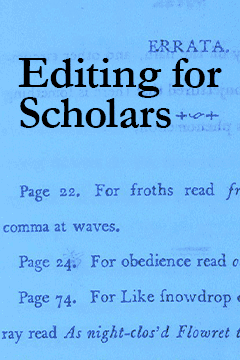Using the Tea Party to Split the Right
Using the Tea Party to Split the Right
Mark Engler: Using the Tea Party to Split the Right
Are you a Democratic congressional candidate in a tight electoral contest? Here’s an idea: Help to recruit a Tea Party candidate to enter the general election and siphon off voters from your Republican opponent. Sure, you might be forced to debate a reactionary nut job. But this only makes you look more reasonable. More importantly, the new entrant splits the right-wing vote. You waltz to victory.
At least one Democratic candidate–Bryan Lentz, who is running for Congress in Pennsylvania’s hotly contested Seventh District–is pursuing this strategy for the fall elections. The Philadelphia Inquirer reports that Tea-Party-identifying candidate Jim Schneller, a new addition to the race, owes almost half the petition signatures he submitted to get onto the ballot to a drive by Democrats:
Democratic volunteers, including campaign workers for the Democratic candidate, Bryan Lentz, collected 3,800 signatures for Schneller. The campaign made no attempts to hide its involvement….
The move is not illegal, although some in political circles view it as hardball (or low-rent) politics….
While the practice is relatively common at the state level, it is not typically seen in congressional races, said G. Terry Madonna, a political analyst and professor at Franklin and Marshall College. And it’s even more rare to clearly see a candidate’s fingerprints on the effort, he said.
“This is one of the top 10 congressional races in the country,” Madonna said. “It just shows you how rough and tumble this race already is.”
There’s some polling data to support the strategy–and to suggest that the Tea Party is doing the Republicans more harm than good. Back in March, CBS news commented on a Quinnipiac University poll indicating that the Tea Party could foil the Republican Party’s hopes of taking Congress:
Given a choice between a generic Democratic or Republican candidate in November’s mid-term elections, voters preferred Republicans by a margin of 44-39 percent. The presence of a Tea Party candidate on the ballot, however, dramatically upsets that balance.
In a potential race between three candidates, 15 percent of respondents would vote for a Tea Party candidate. Thirty-six percent would vote for a Democrat, while only 25 percent would opt for a Republican, the poll finds.
An example of that dynamic played out in New York’s 23rd district special election last fall. Pressured by conservatives and Tea Partiers, moderate Republican nominee Dede Scozzafava elected to drop out of the race to clear the way for Conservative Doug Hoffman. The result: Democrat Bill Owens won a seat that had been strongly Republican for decades.
Is there a down side to this type of thinking? Only the possibility that Tea Party candidates could actually win, in which case we’d be governed by the far Right.
I’ve worried about this with regard to Sarah Palin. Some progressives have hoped that, amid a weak field of Republicans, Palin will emerge as the Republican nominee for president in 2012. They have faith that she would be a weak and polarizing candidate in the general election, leading to an easy Democratic win.
I’m inclined to think that this strategy is playing with fire. Sure, Palin makes egregious gaffes on a regular basis. Similarly, John Heilemann and Mark Halperin’s Game Change reports in detail how McCain campaign staffers found her to be a liability in the fall of 2008 and often regretted putting her on the ticket. Still, as a friend recently remarked to me, plenty of people thought George W. Bush was a bumbling, unelectable dimwit–and look where that notion got us.
Electoral strategies that must rely on too-clever maneuvering can only conceal a party’s more fundamental weakness for so long. At the local level, you can make a case for trying to split the right-wing vote. But, at the risk of being trite, I think there’s a better case for progressives learning to defeat conservative ideas on their merits.




